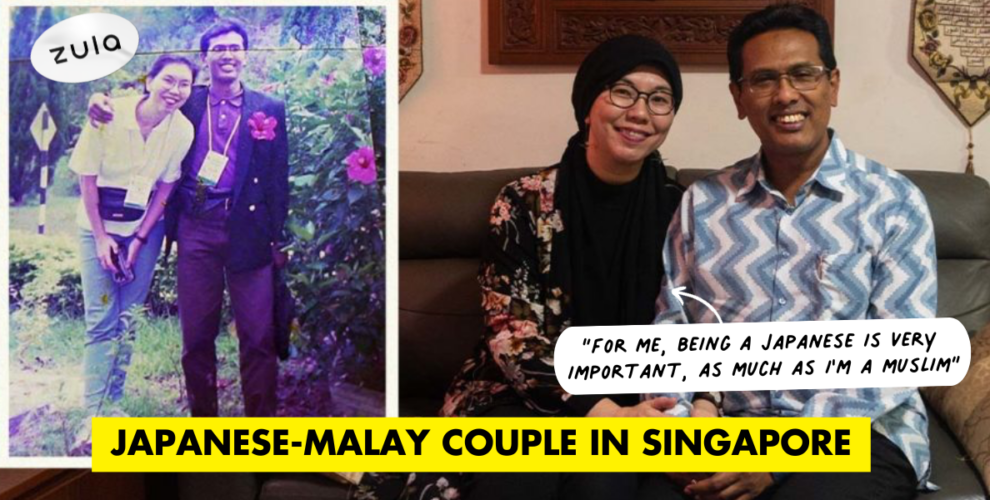Interracial Marriage In Singapore
In Singaporean culture, food is closely tied to how we express care and concern. We ask, “Have you eaten?” by way of greeting. We understand our parents’ wordless “I love you”s when they heap meat and vegetables onto our plates.
Yacob Hussain, 58, arguably demonstrates this understanding best. When wooing his wife, Keiko Soeda, 53, three decades ago, Yacob took the saying, “The way to a man’s heart is through his stomach”, quite literally.
With the help of some nasi lemak and roti prata, what started off as a platonic friendship soon blossomed into a devoted romance.
Contents
Their first meeting in Japan
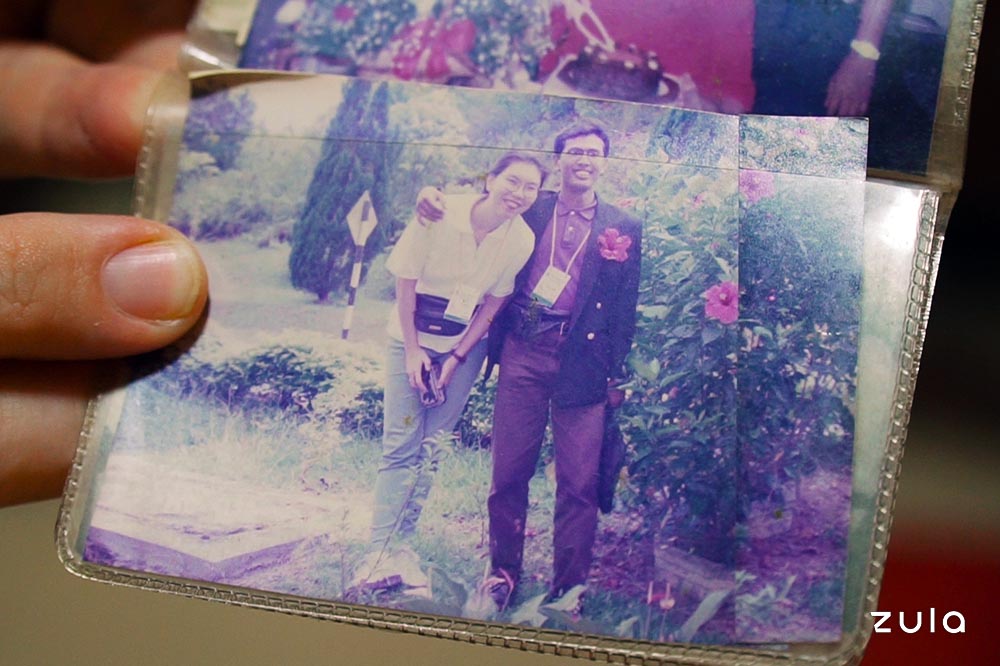 Keiko and Yacob in their twenties
Keiko and Yacob in their twenties
Yacob and Keiko met in 1992, through an event held for the Ship for Southeast Asian and Japanese Youth Programme (SSEAYP) in Japan. Yacob was part of that year’s Singapore contingent. Keiko, who was part of the 1991 Japanese contingent, served as emcee for the last day’s farewell reception.
“She looked so beautiful, wearing [a] red dress and a cap; she was so outstanding. [I thought,] ‘Who’s this lady? She’s the paragon of beauty,’” Yacob recalls with a chuckle. “[She was] down there, tall… I said, ‘Wow, this girl damn kilat (excellent)!’”
Taken by Keiko’s beauty, Yacob went up to her and invited her to hang out with other ship mates. They chatted till first light; that morning, the ship was scheduled to leave the Land of the Rising Sun.
The pair lost touch but a stroke of luck reunited them just six months later.
Courtship with a little help from food
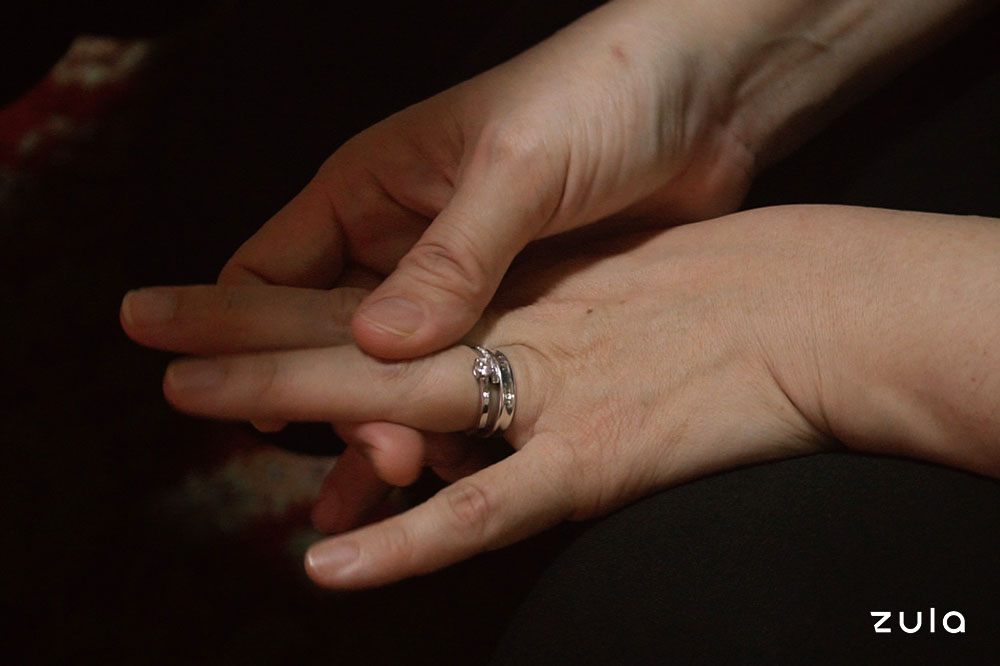 Keiko fiddling with her wedding ring
Keiko fiddling with her wedding ring
Through their mutual friends, Yacob discovered Keiko had chosen to pursue her Master’s degree at the National University of Singapore. As a “typical Singaporean who cares about makan”, he was concerned that Keiko wasn’t eating well.
“That time, I was [riding a] motorbike. Like a Grab driver, I’d bring some food. I brought her roti prata, I brought nasi lemak, every day different food,” Yacob explains. “But then I [couldn’t] buy for her alone because I think [it’s] not fair, so I’d buy a few packets [for everyone else].”
“He was very popular with the girls because he was the abang who’d always buy food for the dormitory,” Keiko interjects.
“But I really didn’t like too much food bringing. During the time that he might come, I would go into the toilet or shower. I was like, ‘Why is he here again, why is he here again?’”
Still, Yacob persisted. Gradually, through conversation, Yacob’s kindness, sincerity and friendship warmed Keiko’s heart. After a year of playing food delivery rider, he confessed his feelings.
“I said, ‘Do you have any feelings for me?’ She said, ‘Well, you’re not so bad.’ And that’s the first time I touched her cheek.”
Long-distance love and opposition to marriage
A year into the courtship, Keiko returned to Japan upon completing her Master’s degree and Yacob was posted to Myanmar for work.
Back then, the internet was still on dial-up and FaceTime didn’t exist. To maintain their long-distance relationship, the couple spent around US$1,000 a month on international phone calls.
In a display of Singaporean practicality, Yacob suggested they get married. In the winter of 1996, he flew to Japan to ask Keiko’s father for her hand in marriage.
The head of the Soeda family not only denied Yacob’s request, but also barred him from entering the house. In tears, Yacob returned to the nearby hotel and met up with Keiko. Against her father’s wishes, they decided to proceed with the wedding.
Also read:
10 Mixed Race Couples In Singapore Share Their Struggles/Perspectives on Dating
On interracial marriages and Muslim conversion
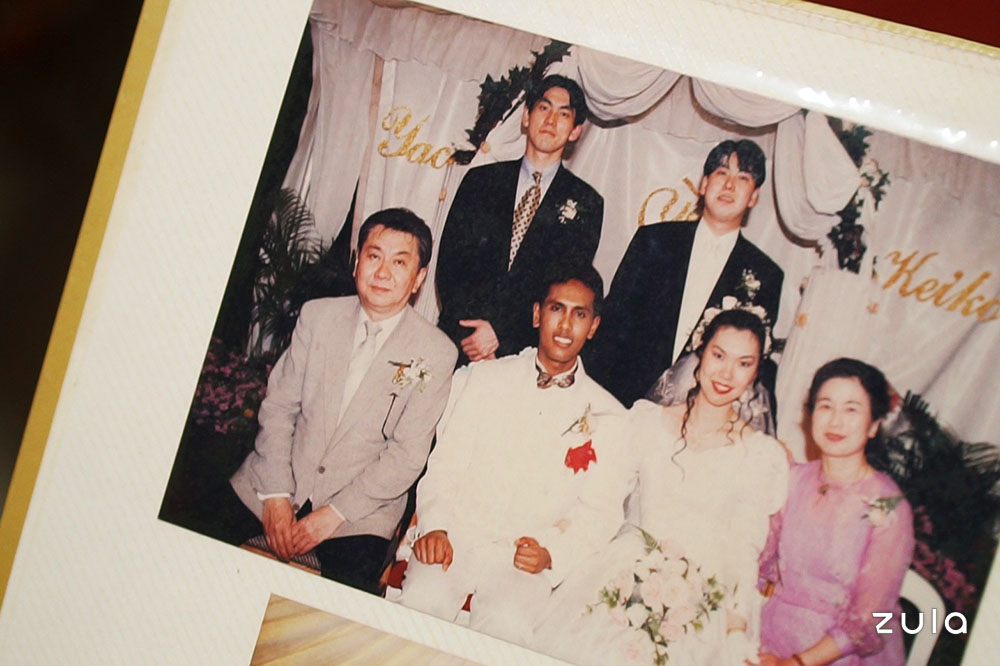 Keiko and Yacob’s wedding day, pictured with Keiko’s family
Keiko and Yacob’s wedding day, pictured with Keiko’s family
I ask Keiko what she thinks is the reason her father opposed to the mixed race couple‘s union.
“My father is very open, but I think he was very worried for his daughter. I think he did not want me in a situation where I may have difficulties culturally or [otherwise].”
“Of course, religion and culture [are] very important. Because we keep [these values close to us]; that’s who we are. But we need to [have] respect for one another.”
“People might say, ‘When I go for international marriages, or interracial marriages, I lose certain things.’ No, you do not lose anything. For me, being a Japanese is very important, as much as I’m a Muslim.”
For Keiko, the topic of converting to Islam upon marriage did not place added strain on the relationship.
While writing her Master’s thesis, she had learnt about Islam and the Malay culture for additional research. Encouraged by her studies and her budding relationship with Yacob, Keiko took Sunday classes at the Muslim Converts Association of Singapore.
“I didn’t know that I had to convert before I got married. But religion for him was very important. So I wanted to learn more. I didn’t want to convert just for the sake of converting.”
“We’re still happily married, but just in case we separated or anything, I didn’t want to lose the religion.”
A happy ending
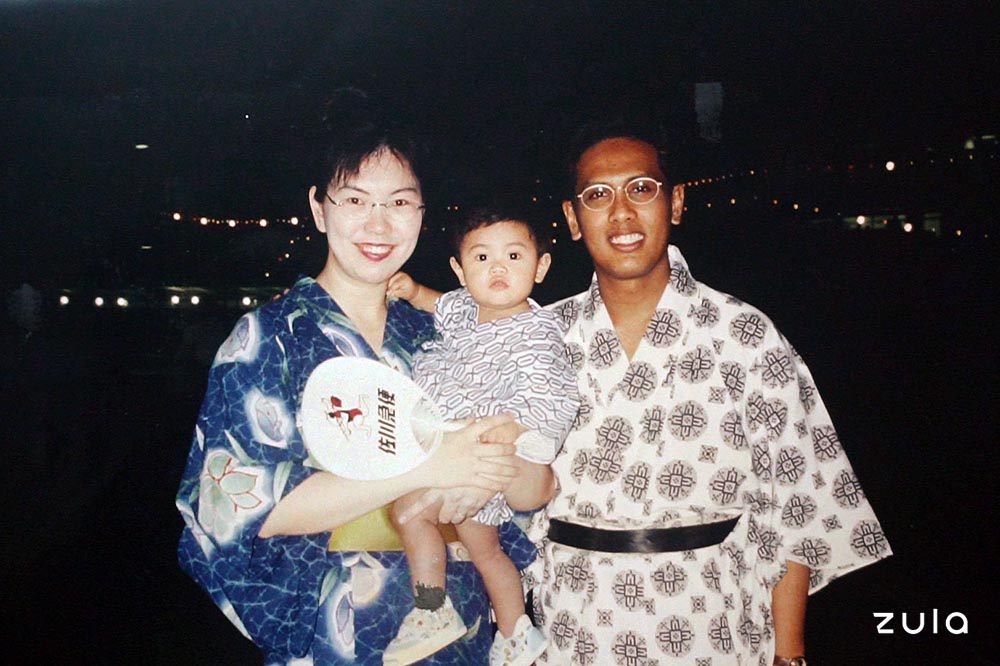 Keiko and Yacob with their oldest son when he was still a toddler
Keiko and Yacob with their oldest son when he was still a toddler
Despite the curt rejection, Yacob was never rude to his future in-laws. Over time, Keiko’s father was won over by Yacob’s dedication towards and respect for Keiko. On the eve of the wedding, he called for a meeting with Yacob at The Westin Singapore.
“He said, ‘Yacob-san, long time no see.’ He looked at me [and said,] ‘How are you?’ I was quite worried, scared.”
“He shook my hand and he said, ‘The whole family [is] against this relationship. My daughter, Keiko’s, love for you is so great. We have to accept you. Welcome to the Soeda family.’” That, Yacob declares, was the happiest moment of his life.
That night, Keiko’s family flew to Singapore to attend the wedding. Twenty-seven years of marriage and three children later, the Japanese-Malay couple are as smitten with each other as ever.
Advice From Interracial Marriage Couple In Singapore
So what’s the secret for a long, happy marriage? For Yacob and Keiko, they boil it down to communication, trusting your partner and having me-time.
“Family and your spouse [are] always important but you and your husband need to have your own friends, private time and space. If you have that trust as a base, then let your husband go,” Keiko says.
While the simplicity of their answer sounds too good to be true, I’m inclined to believe them.
Just watching Yacob and Keiko hold hands, tease and giggle at each other’s jokes will affirm even the most jaded cynic that love can endure, that love does exist.
Watch the full video here:
This article was first published on 14 November 2019 and last updated on 6 December 2023.
Also read:
I’m Marrying My Muslim Boyfriend And This is What A Mixed Race LDR Taught Me

